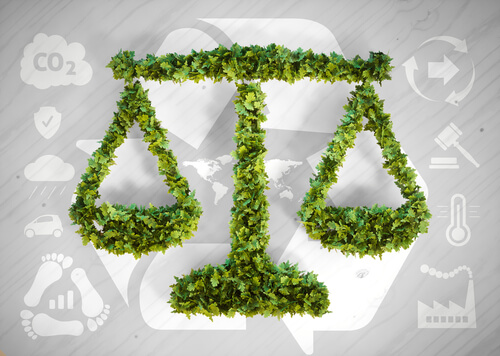Electronic waste (e-waste) is a continually growing concern for environmentalists and policymakers alike. Given the rapid pace of technological innovation, electronic devices have become infinitely more pervasive in our daily lives, leading to a surge in the e-waste we generate globally.
This has prompted governments and international organizations to establish laws and regulations to address the problem of e-waste disposal and promote responsible recycling practices. Now let’s explore the legal framework around e-waste and the role of government in promoting responsible recycling.
What Is E-Waste?
E-waste is a term used to describe electronic devices that are no longer usable or have reached the end of their useful life. This includes items such as computers, mobile phones, televisions and other electronic equipment. E-waste can contain hazardous materials such as lead, mercury and cadmium, which are harmful to both the environment and humans if not properly disposed of.
Global Regulations
Governments around the world have established regulations on e-waste disposal to make sure it’s handled in an environmentally responsible way. While these regulations vary depending on country or region, they typically require e-waste to be collected and processed separately from other types of waste.
WEEE in the E.U.
In the European Union, for example, the Waste Electrical and Electronic Equipment (WEEE) directive requires manufacturers of electronic equipment to be responsible for its disposal themselves. This means manufacturers must collect and recycle a percentage of the electronic devices they produce, and additionally requires member states to establish collection systems for e-waste and make sure it’s treated in an environmentally sound manner.
RCRA in the U.S.
In the United States, the Resource Conservation and Recovery Act (RCRA) regulates hazardous waste disposal, including e-waste. The RCRA requires dangerous waste to be handled, transported and disposed of in a way that doesn’t pose a threat to human health or the environment. The act also establishes a “cradle-to-grave” system of accountability for hazardous waste, meaning companies are responsible for the disposal of their waste from the moment it’s generated to final disposal.
E-Waste and Exports
One of the biggest challenges in addressing the problem is the export of electronic devices to developing countries. Many countries in Africa and Asia have become dumping grounds for e-waste from developed countries. This leads to environmental and health problems in these countries, as the e-waste often goes through processing in unsafe and unregulated conditions.
The Basel Convention was established in 1989 to regulate the international transport of hazardous waste. It prohibits the export of hazardous waste from developed to developing countries without the consent of the importing country. However, the convention doesn’t specifically regulate e-waste, and many countries still need to ratify it.
Extended Producer Responsibility
Many governments have established extended producer responsibility (EPR) programs, which require manufacturers to take responsibility for the entire life cycle of their products, including disposal. This incentivizes manufacturers to design products that are easier to recycle and reduce the amount of e-waste they generate.
The EPA
Governments can also provide funding for e-waste collection and recycling programs. For example, the United States’ Environmental Protection Agency (EPA) provides funding to states and municipalities for e-waste collection and recycling programs. This can help make sure e-waste is appropriately collected and processed, reducing the amount that ends up in landfills or gets exported to developing countries.
RetirePC Pays You for Your E-Waste
Taking these simple steps can help reduce the impact of e-waste. And if you’re looking for a certified recycling facility that can help you dispose of your devices responsibly, look no further than RetirePC.
Our state-of-the-art recycling center ensures that your devices are disposed of safely and responsibly, so you can feel good about your impact on the environment and even make a few bucks for your trouble.
Don’t contribute to the growing e-waste problem; take action today! Properly disposing of your devices is as easy as partnering with RetirePC.
Contact us today to schedule your next drop-off or pick-up.


